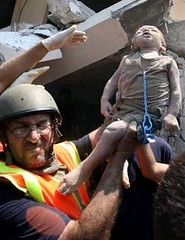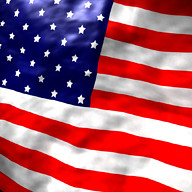Know what a hudna is? It is a term used to describe a principle whereby you enter into a treaty of peace with an enemy for the purpose of gaining time and strength. When you are then strong enough to vanquish your enemy, you find a pretext to set aside the treaty. It is, at best, a clever tactic to gain a reprieve while you prepare for inevitable action. It is, at worst, a doctrine of pure deception that is full of deception and guile.
An article by Daniel Pipes called "[Al-Hudaybiya and] Lessons from the Prophet Muhammad's Diplomacy", appeared in the Middle East Quarterly of September 1999. It described the story of how Mohammed used the principle of hudna to conquer Mecca.
Read the whole thing here.The sources tell of tensions between Muhammad and the grandees of the Quraysh tribe who controlled Mecca, his home city. The Quraysh leaders viewed the upstart prophet as a direct threat to their interests for his monotheistic message undermined Mecca's status as a pilgrimage destination for followers of the polytheistic Arabian religions. Tensions between Quraysh and the nascent Muslim community eventually forced Muhammad to flee the city in 622 c.e., when he found refuge in Medina, a town to the north of Mecca. By 628, Muhammad had built enough strength in Medina to challenge the Quraysh and possibly to vanquish them and take their city; instead, he reached an agreement with them. Named the Treaty of Hudaybiya after the town where it was signed, this pact disappointed many of the Muslims, who were spoiling for a fight. The treaty held that the two sides agreed to remove war from the people for ten years. During this time the people are to be security and no one is to lay hands on another. . . . Between us evil is to be abstained from, and there is to be no raiding or spoilation.
In the twenty-two months after signing the treaty, Muhammad significantly built up his power base. He made new conquests and formed alliances with powerful tribes, in particular with the Bani Khuza`a. As a result, by 630, he was considerably stronger vis-Ã -vis Quraysh than at the time of the signing. Quraysh did less well in terms of making new alliances, but it did ally with another strong tribe, the Bani Bakr.
Now, the Bani Khuza`a and the Bani Bakr lived near each other and had a long history of feuding-and feuding in Arabia, as in Appalachia, was passed on from generation to generation. In December 629, some of the Bani Bakr, possibly with Quraysh help, took vengeance on a party of the Bani Khuza`a, killing several of the latter. On hearing this news, Muhammad instantly opted for the most drastic response - to attack Mecca. It appears that he had decided the time had come to challenge the ultimate power base of Quraysh in their home city.
In response, Quraysh sent a delegation to Muhammad, petitioning him to maintain the treaty, and offering (as was the Arabian fashion) material compensation for the lives of the dead men. Muhammad, however, had no interest in a compromise and rejected all Quraysh entreaties. In an act of desperation, Abu Sufyan, leader of the Quraysh delegation, went to the mosque in Medina and proclaimed, "O people, I guarantee protection for all!" To this, Muhammad dryly replied, "You say this, O Abu Sufyan, not any one of us."
Muhammad had already made quiet preparations for an assault on Quraysh. This meant once the desultory negotiations ended, he was ready in short order to advance with a huge force on Mecca. So impressive was his army that the Meccans made no effort to resist it. Instead, they surrendered their city without a fight in January 630. And so ended the Hudaybiya incident.
The problem is that anyone that tries to enter into a treaty with an Islamic country must view the intentions of that country with suspiscion. In 1994, Arafat was overheard to say something about a treaty he had made with Israel. Criticized by Arabs and Muslims for having made concessions to Israel, he defended his actions by comparing them to those of the Prophet Mohammed under the same circumstances.
I see this agreement as being no more than the agreement signed between our Prophet Mohammead and the Quraysh in Mecca.
Arafat continued in his comparison, recalling how Muhammad was also criticized for his diplomacy by one of his future caliphs, `Umar ibn al-Khattab, Mohammed had been right to insist on the agreement, for it helped Mohammed defeat the Quraysh and conquer the city of Mecca.
In a similar spirit, we now accept the peace agreement, but [only in order] to continue on the road to Jerusalem.
WHOA! BATTLE STATIONS SULU! RED ALERT! RED ALERT! DANGER! DANGER WILL ROBINSON! How can anyone know and trust Islam's true intentions? In the years after he first alluded to Mohammed and the Quraysh, Arafat frequently mentioned Mohammed's hudna as a model for his own diplomacy. This raises many serious questions about the integrity, truthfulness and trustworthiness of Islam when it comes to treaties and agreements between Islamic countries and the West.
This brings us to UN Resolution 1701 and it's implementation. All parties concerned have already indicated that they will not disarm Hizbollywood. Hezbollah will remain in Lebanon and have now gained the reprieve of the hudna. They have also won the war of world opinion through the MSM and manipulations of the Left. Who wins here? Israel or Islam? A hudna allows Hizbollywood to fight another day when it feels expedient to set aside 1701. Iran and Syria can resupply Hizbollywood with even better weapons while Hizbollywood implements the lessons and tactics learned in battles against Israel's IDF.
Haaretz today has an article today describing the hudna in effect.
A compromise agreement now being hammered out between Hezbollah and the Lebanese government would allow the Shi'ite guerillas to keep hidden weapons in south Lebanon, the London-based Al-Hayat newspaper reported on Tuesday.
While Hezbollah would need to keep the weapons it possesses south of the Litani River hidden, an agreement for areas north of the river would be "left to a long term solution," the paper reported.
If the proposed compromise is accepted Tuesday by the Lebanese government, it would violate the terms of United Nations Security Council Resolution 1701 ending the war in Lebanon. The resolution rules that the Lebanese army and UNIFIL may be the only armed forces in the territory between the Litani River south to the Israeli border.
This compromise is also a violation of the "one weapon" principle that appears in Lebanese Prime Minister Fuad Siniora's Seven Points Plan.
No pretense here, no hint of Lebanon or Hizbollywood even trying to abide by UN 1701. At least Mohammed waited a while before setting aside his agreement.
Shameful.







